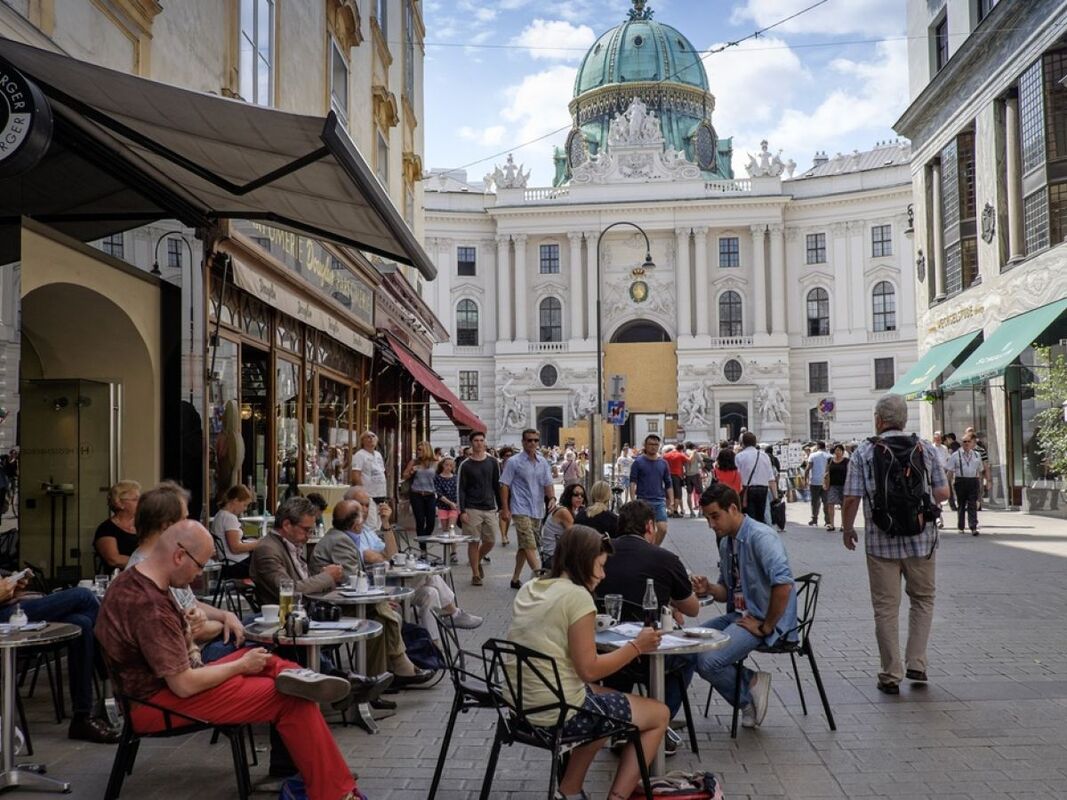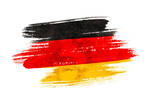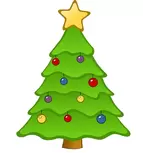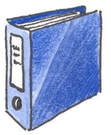How do people in the German speaking countries celebrate Christmas. Find out about the different Christmas traditions - just click on the hyperlinks. On December 1, children can open the first door of their "Adventskalender". On the first day of Advent, people in Germany, Austria, and Switzerland, people typically put up an "Adventskranz". On December 6, "Nikolaus" visits the children and leaves chocolate and candy in their boots. On December 24th (Christmas Eve) we celebrate Christmas and open our gifts. This is gift-giving ceremony is called "Bescherung".
You want to learn German? Welcome to an exciting adventure. Learning a new language is not just a matter of memorizing vocabulary and grammar. A good learning strategy and regular routine can greatly accelerate and improve your learning experience. Not every strategy is right for everyone. So, try out what best suits your learning style.
 Keeping a language learning journal might be a good idea as well. After each class or lesson, reflect on what you have learned and write down your thoughts about it. Here are possible questions you can answer for yourself:
One way to build your vocabulary is to group new words by topic, e.g. Essen und Trinken (food and drink), Familie (family), Meine Wohnung (my apartment), etc. and create a mindmap. A mind map is a diagram with which you can present knowledge and ideas in an organized way. There is one main concept in the center, around which you then arrange your knowledge in the form of keywords, pictures or illustrations. You can create a mindmap on paper or digitally on a PC, tablet or smartphone. When you learn a new language, you learn new words and new grammar concepts. A useful strategy is to look for patterns within these new grammatical structures and create your own tables, charts, or diagrams to represent these new patterns in a way that makes sense to you. Apply what you have learned immediately. There are many ways to integrate what you have learned into your everyday life: Write your shopping list in German, name the furniture in your house or the groceries in your fridge, write the names of items on sticky notes and label the furniture in your house, write your text messages in German, write a diary in German and describe in simple short sentences what you did the day before. It is not important to be perfect, but to integrate what you have learned into your daily life right away and use it. And don't forget speaking. The best way to learn to speak a new language is to speak it. Practice those new and unfamiliar sounds and speaking patterns every day. At first, it might seem strange to hear yourself speak in a different language, but the more you do it, the faster you will get used to it. If you don't have anyone to speak to, talk to yourself. Here are some tips:
Remember, it is not about perfection, but about establishing a new routine. Try different things, find out what works for you and what doesn't. Speak German a lot and have fun with it.
Viel Spaß "Wiener Zeitung", the world's oldest daily newspaper was published for the last time on June 30, 2023. There is an interesting article in The Guardian telling the story of the famous newspaper. Hower, the Wiener Zeitung still exists as an online edition wienerzeitung.at with interesting articles, podcasts and videos. There, you can also sign up for the Wiener Zeitung newsletter.
 Vienna has once again been named the world's most livable city out of 221 major cities. The city has a population of around 1.8 million and is growing steadily. Vienna is ranked before Kopenhagen and Melbourne. Public services and transportation, high security and plentiful cultural offerings were among the top ratings. The categories were stability, health, education culture, environment and infrastructure. Check out the city of Vienna's website for more information on Austria's capital city: City of Vienna  When is Easter celebrated in the German speaking countries? Easter is celebrated every year in March or April. Since the holiday always takes place on the Sunday after the first full moon of spring, Easter is on a different weekend every year. Easter is originally a church holiday. On Easter Sunday, Christians celebrate the resurrection of Jesus. Easter is also the end of Lent (the 40-day fasting period before Easter). In the past, eggs were not allowed to be eaten during Lent. Therefore, they were preserved and to distinguish them from the uncooked eggs, they were painted. There are many Easter traditions. On Easter, many people dye and paint or decorate their Easter eggs themselves. For this, chicken eggs are blown out or boiled and painted with different colors. There are many different techniques. Easter eggs symbolize fertility, life and new beginnings. Homes and gardens are also decorated during the Easter holiday. Many families make an Easter bouquet. Typically, the branches of forsythia are used for this or pussy willow. The branches are placed in a vase and hung with the painted and decorated Easter eggs. Throughout Europe, pastries and sweets are also a part of the Easter celebration. In Germany, many families have an Easter brunch. People often bake an Osterzopf (braided sweet yeast bread). Another tradition is the Easter egg hunt. The Easter eggs or nests are hidden by the Easter bunny all over the house or in the garden and must be found by the children. But where does the Easter bunny actually come from? The custom that different animals - and not just the Easter bunny - are responsible for hiding the eggs dates back to the 16th century. In Tyrol, the Easter hen laid the eggs for a long time, in Schleswig-Holstein, Westphalia, Lower Saxony and Bavaria came the fox or the Easter rooster, in Switzerland the cuckoo hid the eggs and in Thuringia the stork. From the 19th century onwards, the Easter bunny established itself as the undisputed symbolic animal for Easter. Easter is also a family day. People visit family and in many families an Easter walk is very important. Here are a few German-English terms around Easter: der Osterhase – Easter bunny das Osterei – Easter egg das Osternest – Easter nest der Ostersonntag – Easter Sunday der Ostermontag – Easter Monday die Palmkätzchen – pussy willow (plant) das Schokoladenei – Chocolate Easter Egg der Osterspaziergang – Easter walk der Osterzopf – braided sweet yeast bread Try baking an Osterzopf, here is an easy recipe: Osterzopf Have fun baking and Happy Easter!
Stop by for a little chat at the Austrian cultural table and at the same time have a look around at the many other countries and cultures. Here is the message from the organizer: "ICFF is Pacific Northwest’s one and only, most culturally enriching festival for the children! Our vision is a peaceful future where all peoples of the world respect, appreciate, and enjoy the rich and diverse cultures of each other. To fulfill our vision, we are creating opportunities for young people to experience different cultures at an early age through art, music, folklore, and cultural displays." April 22nd - 23rd 2023
11:00 - 6:00 pm Fisher Pavillion, Seattle Center  The New Year is here and the time for New Year's resolutions. What are yours? Have you been planning to learn German or brush up on your German skills. 2023 is a good year for it. But before you embark on your language learning journey, be clear about why you want to learn a language in the first place. Write down your motivation so you always have it in mind. Language learning consists of different skills and they all need to be practiced: reading, writing, listening, and speaking. When you learn something new, use it immediately. This is important so you can memorize new structures and phrases. Speaking is often the biggest hurdle when we learn a new language because we are afraid of making mistakes and we might feel a bit odd because we are not used to hear ourselves speak in a different language. Making mistakes is not only OK but necessary! This is how we learn. The more you speak, the more confident you'll become with time and the mistakes will become fewer. If you have no one to speak German with then just speak to yourself. Narrate your day, describe what you are seeing and what you are doing throughout your day. This way you will get used to speaking in a foreign language and after a while it won't seem so strange anymore. Enjoy your language learning journey and have fun it. You can do it! Here are 7 more tips and tricks from EasyGerman. |
|








